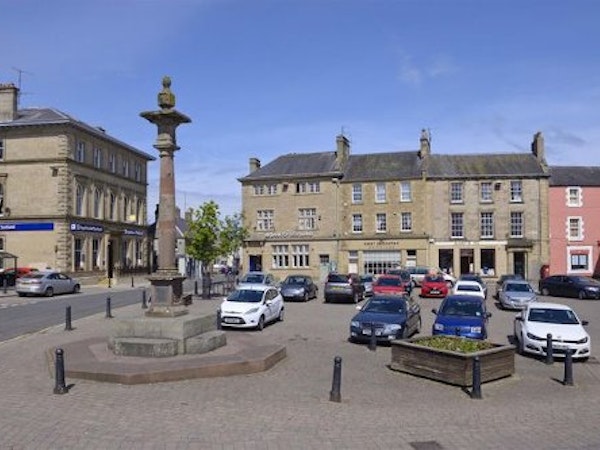
1
Mercat Cross
Beside the car park area of the square.
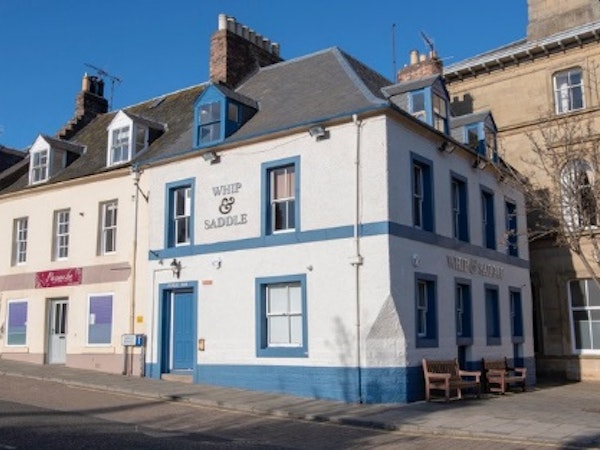
2
Whip and Saddle
Just around the corner in the Square is The Whip and Saddle pub, recently closed.
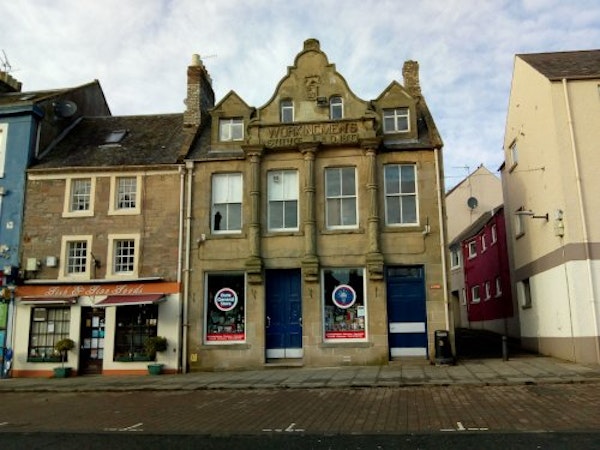
3
Working Mens Institute
On the north side of the Market Square, is the Ironmongers shop, which was the former Working Men’s Institute.
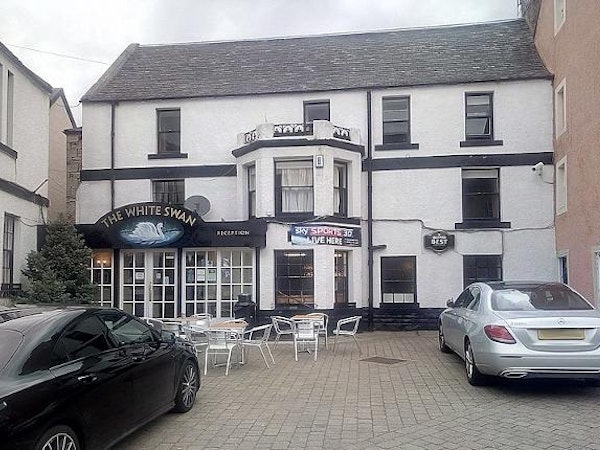
4
The White Swan Hotel
In the north west cirner of Market Square you will find The White Swan Hotel
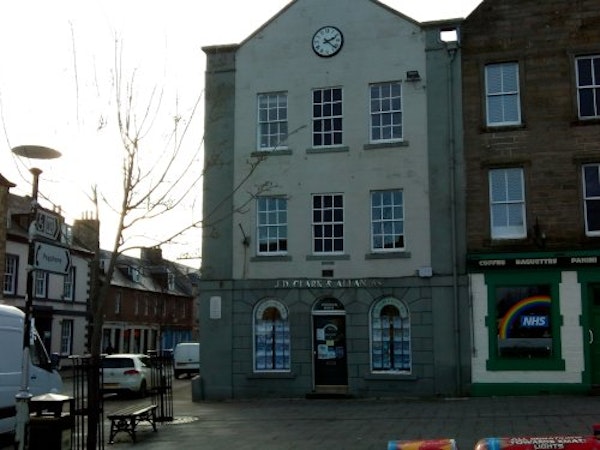
5
Tolbooth
On the west side of the Market Square is a three storey block with a clock on the gable. This is the Tolbooth House.
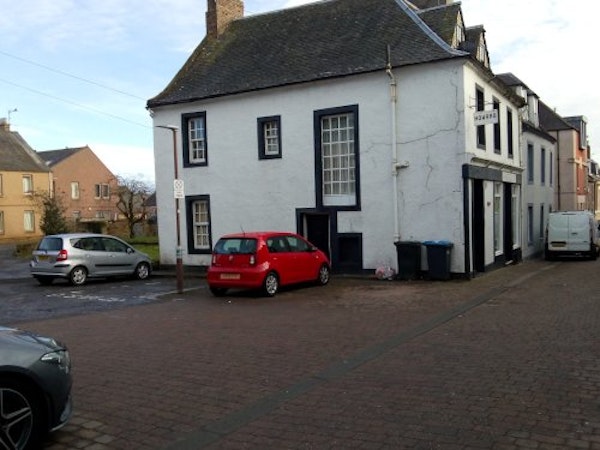
6
18 Castle Street
Cross to the north east corner of the Square, near to The Jim Clark Bistro
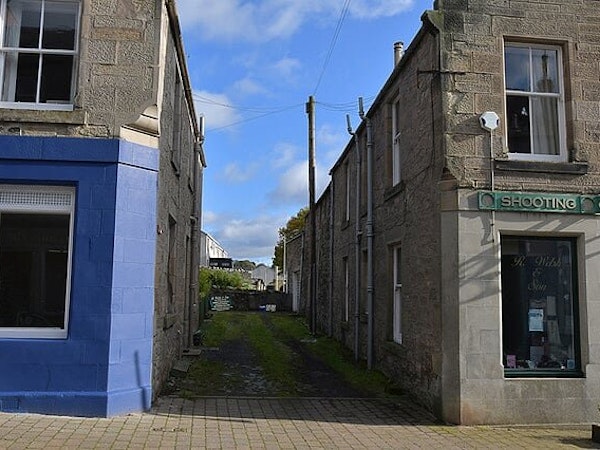
7
Kings Entry & Parliament Close
The alley to the right of the property on your right was once known as King’s Entry in honour of the visit of King James VI in 1602.
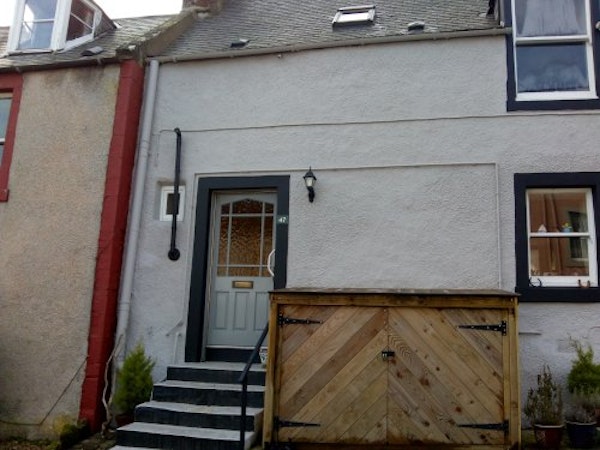
8
47 Castle Street
At one time there were several private schools in Duns, two of which can be found at 47 and 68 Castle Street
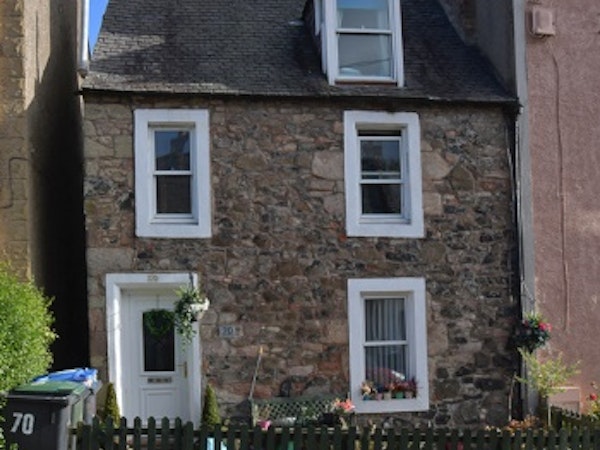
9
70 Castle Street
On your right is 70 Castle Street, which was known as ‘The Beggars’ Neffie’ (fistful), due to the fact that a man who once lived there took part in a peculiar form of trade.
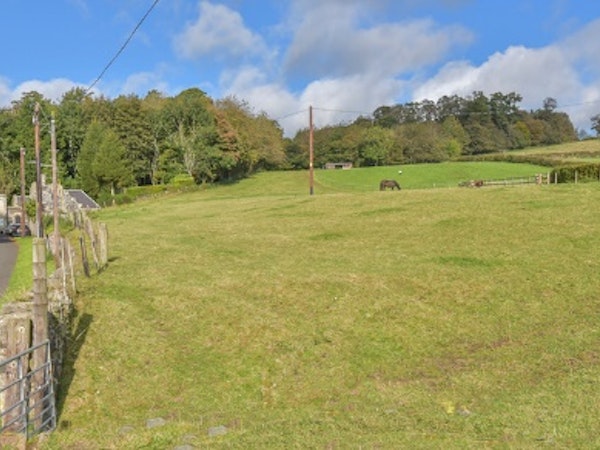
10
Tinkers' Acre
Just past the last house on your right is the entrance to the town’s former reservoir (built in the late 19th century), which is set back slightly from the road.
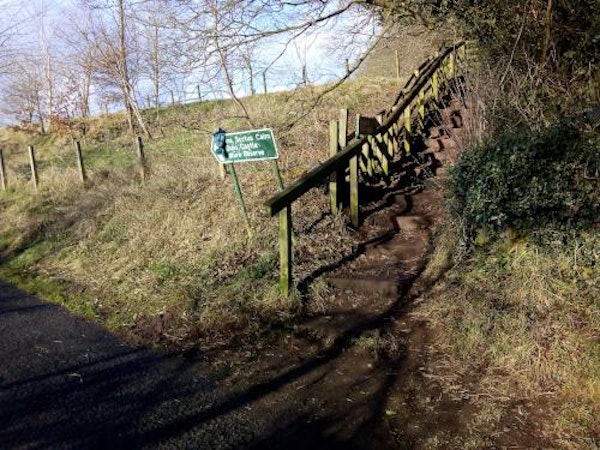
11
Duns Law
Through the North Lodge Archway on your right-hand side is a set of steps leading to the Old Town Cairn and Duns Law.
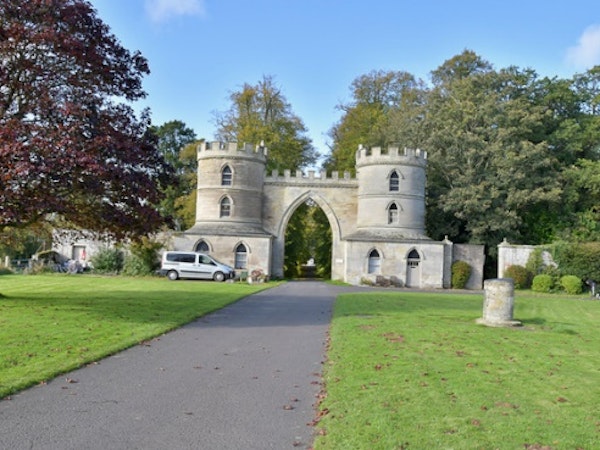
12
Pavilion Lodge
Pavilion Lodge dates from the 1770s and is one of the entrances to Duns Castle.
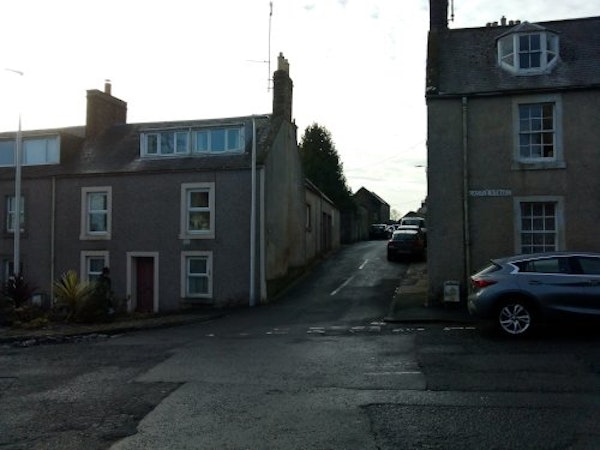
13
Clouds
At this junction there is also a road on your right called Clouds.
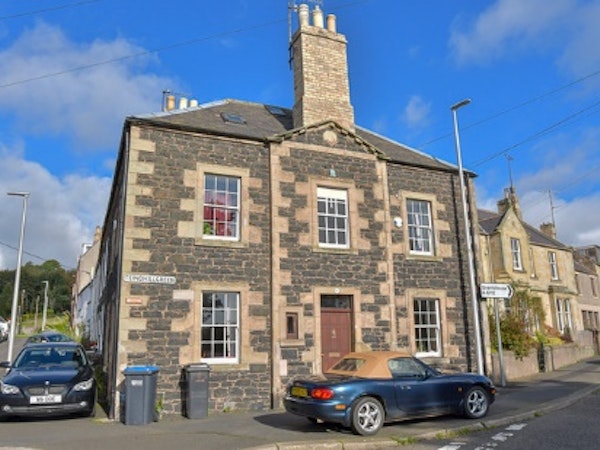
14
The Ewe and Lamb
On the opposite side of Castle Street is the house 1 Teindhillgreen. This was once a public house called The Ewe and Lamb.
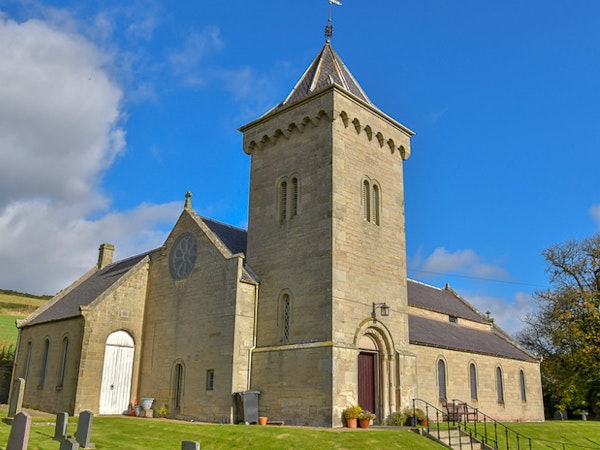
15
Christ Church
Christ Church erected in 1854 to a design in the Romanesque style.
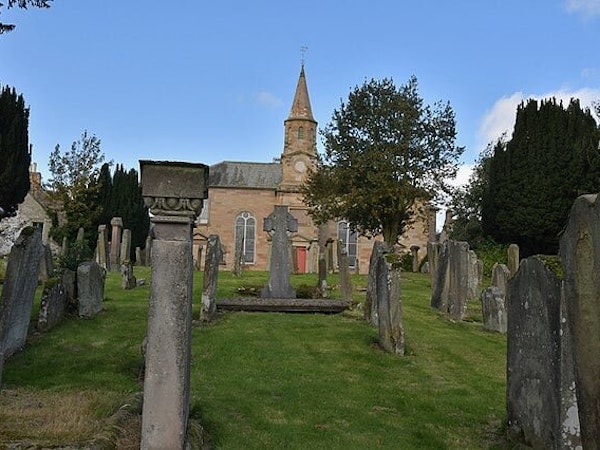
16
The Parish Church
The ancient Parish Church was taken down in 1790, although some vestiges of the original building remained until they too were demolished in 1874.
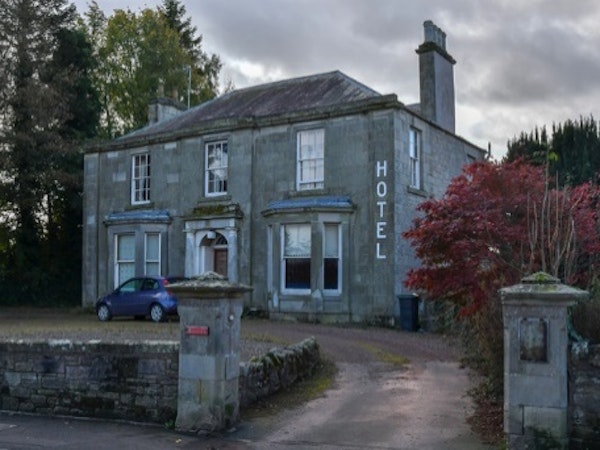
17
The Barniken
Looking straight in front of you, set back, is a house named The Barniken.
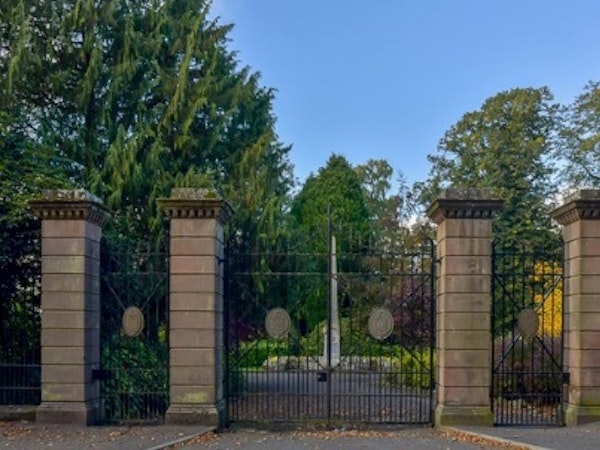
18
The Public Park
The two central gates bear the Burgh Arms, the left side gate the arms of Sir William Miller of Manderston and on the right- side gate, those of John Smyth, dating from the 17th century.
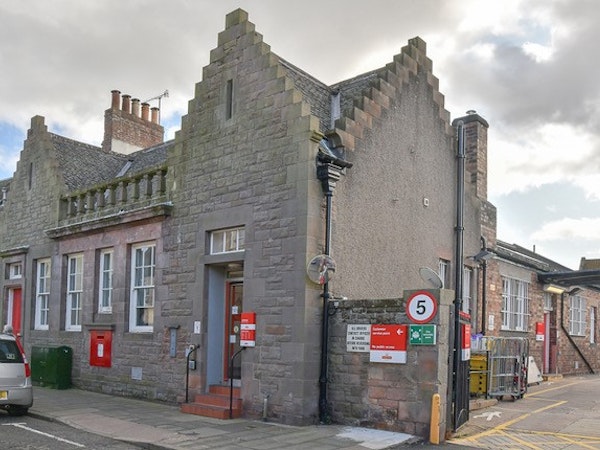
19
Former Post Office
On your left is a Former Post Office, now the Royal Mail Sorting Office. This building was designed around 1900.
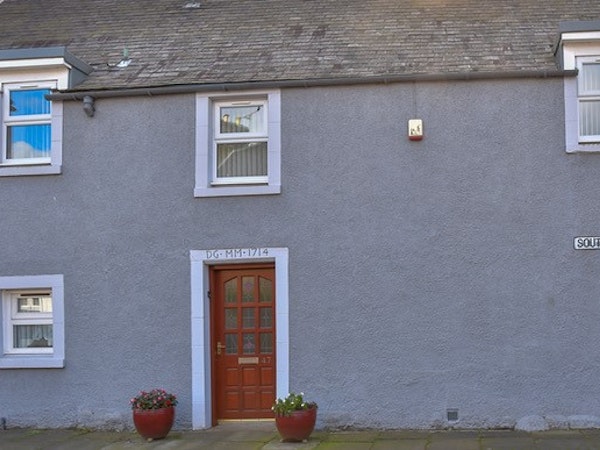
20
47 South Street
Opposite the junction of Willis Wynd is 47 South Street. This building was erected in 1714, dated on the marriage lintel over the front door.
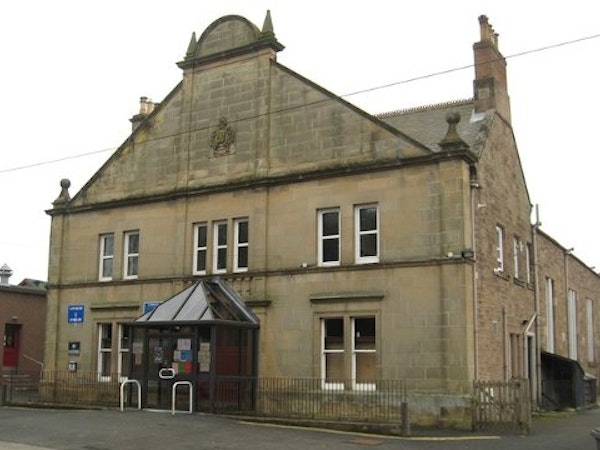
21
Volunteer Hall
The Volunteer Hall was opened in 1895 century as the Drill Hall for the local Volunteers Forces.
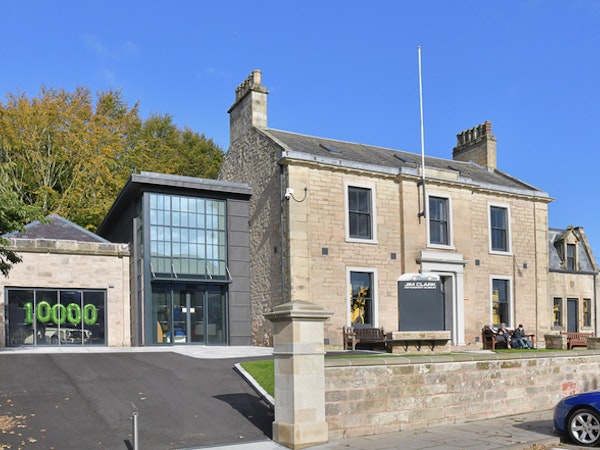
22
Jim Clark Motorsport Museum
Along on the left is a 19th century villa which houses the award- winning Jim Clark Motorsport Museum, which was redeveloped and reopened in 2019.
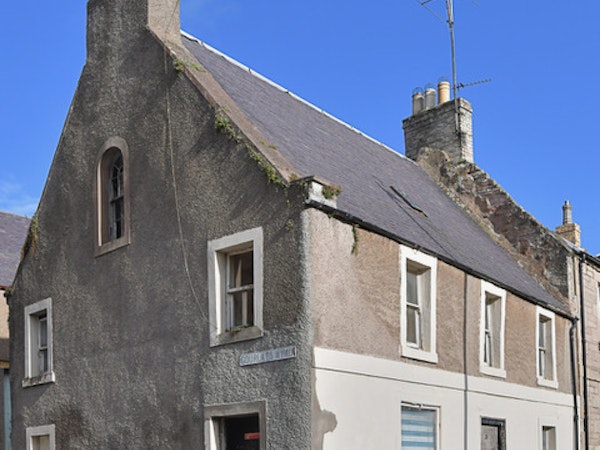
23
28 Newtown Street
28 Newtown Street on the left side of the road at the junction with Gourlay’s Wynd, was originally called ‘Clackmae’. This is one of the oldest houses in Duns.
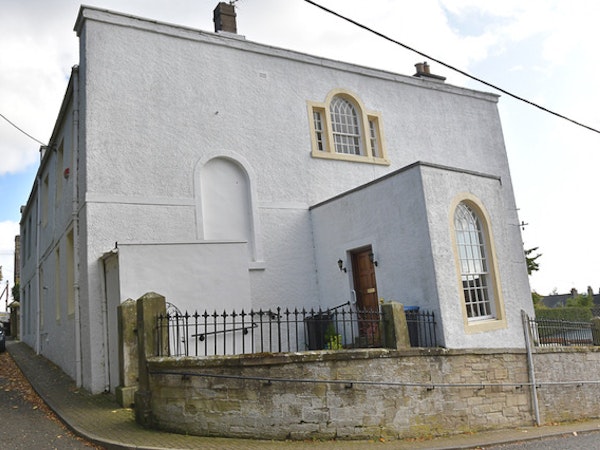
24
Burgher Meeting House
At the top of Gourlay’s Wynd it turns right and joins Clouds. Nos 13 &14 are on the corner, the latter having obelisk gate-piers.
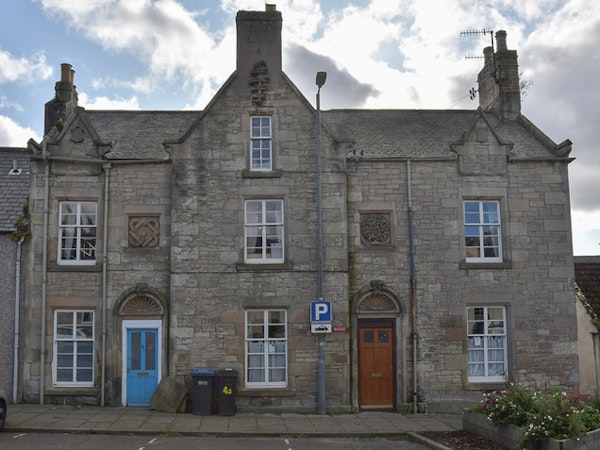
25
43 Newtown Street
43 Newtown Street was built in 1843 in the Jacobean style as the Boston Free Church School and has a number of decorative panels related to the Free Church.
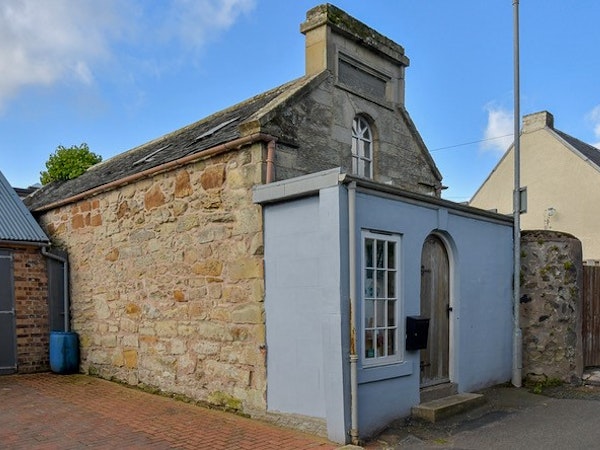
26
Willis Wynd Chapel
On the right-hand side is Willis Wynd Chapel, one of many former ecclesiastical buildings in the town.
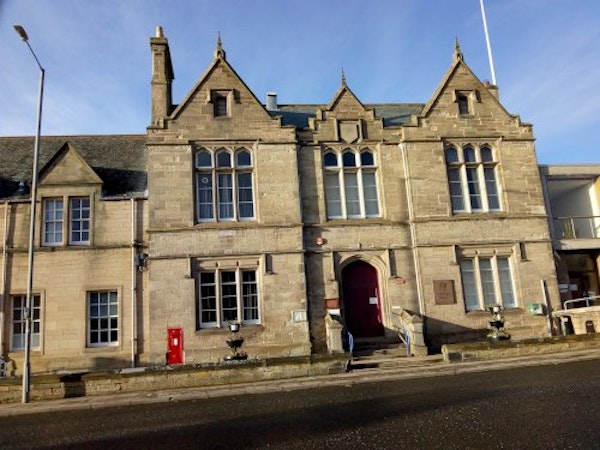
27
Former Sheriff Court
Built around 1855, in a Jacobean style, is the imposing former Sheriff Court of two storeys with three bays in a Tudor collegiate style.
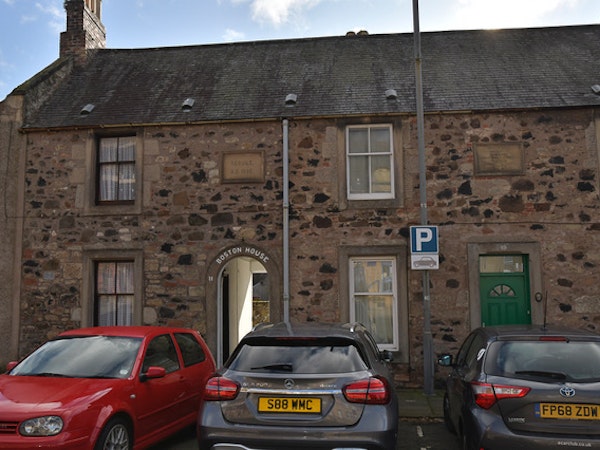
28
Boston House
Boston House was the birthplace of the preacher Thomas Boston who lived from 1676 to 1732 and was the son of a Covenanting minister.
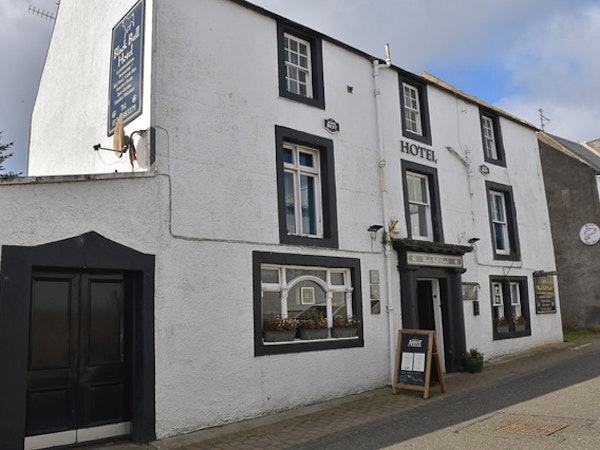
29
The Black Bull Hotel
The Black Bull Hotel was built in the early 19th century and has a crude Doric door-piece.
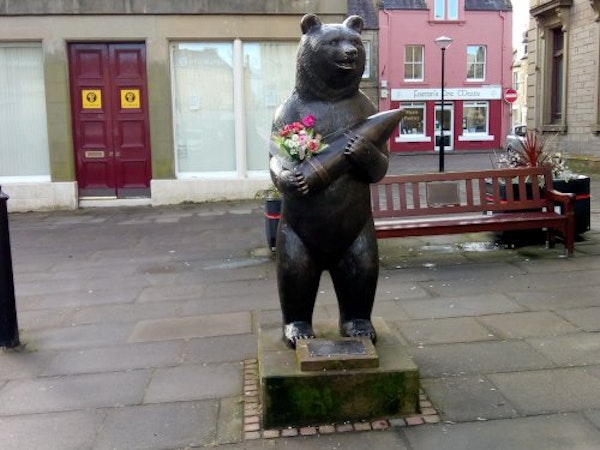
30
Wojtek the Bear
Wojtek the Soldier Bear was a mascot of the Polish forces, some of whom were stationed around Duns during the Second World War.
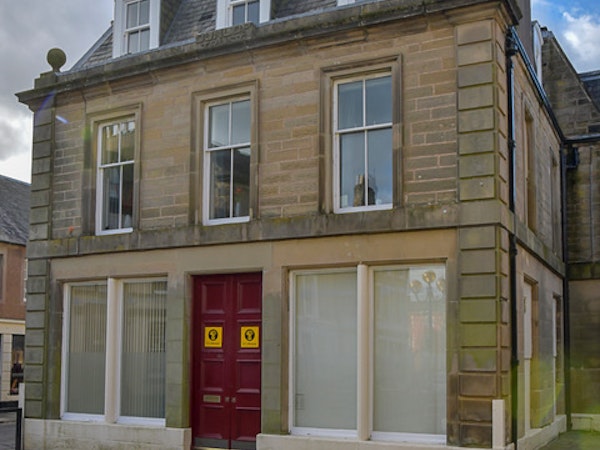
31
Waverley Temperance Hotel
The NFU Mutual office used to be a hotel, the Waverley, built by The Dunlop Trust in the late 19th century as an establishment where no alcohol was served.
